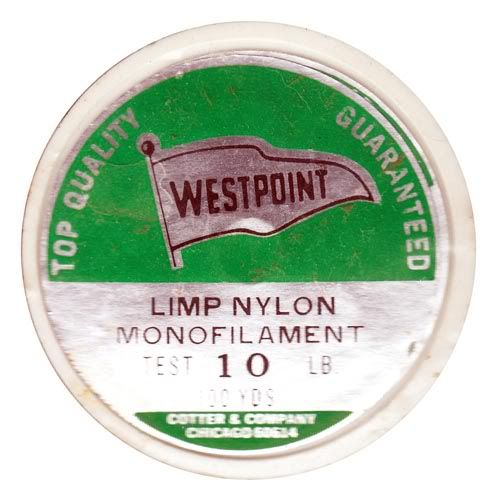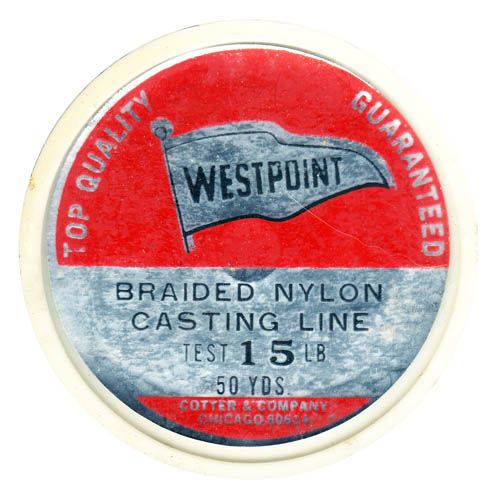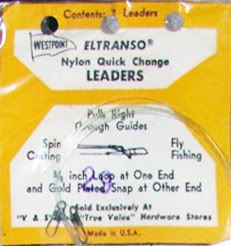
Over the course of the next year, we'll be detailing the history of 52 companies that sold branded fishing tackle. 52 trade houses in 52 weeks -- some obscure, some famous, and all available exclusively here on the Fishing for History Blog! If you have any items from the week's entry you'd like to share with us, please send it my way and I'll make sure it makes it on the blog.
For a discussion of what exactly trade tackle is, Click Here. Enjoy the 52 for 52!
My love of wholesale hardware history is deep and abiding. Of all the firms that sold tackle, I would have to say that it is hardware companies I enjoy the most. Which is why I like John Cotter -- the man who found a way to make hardware in America work in an era when most everyone else failed.
He was clearly one of the most important people in the history of 20th century American hardware, and he got his start in a familiar place (to me): Duluth, Minnesota. Kelley-Howe-Thomson, which we profiled about three months ago, was always overshadowed by its larger Duluth cousin Marshall-Wells.
But it was K-H-T where John Cotter cut his teeth. A native of St. Paul, he began working at a local hardware store in grade school and moved up in the 1920s to become a traveling salesman (or "drummer" as they were known) and later department manager for K-H-T. Edward R. Kantowicz's biography of Cotter shows clearly how much this time influenced him; Cotter credited his time in Duluth as teaching him the skills necessary to strike out on his own. In 1942, he left K-H-T for Oakes & Co. in Chicago, a hardware distributor.
In 1947, working with Bill Stout (general manager of American Hardware), he began to plan the launch of a new hardware cooperative. In January 1948, Cotter & Co. opened its doors with 12 hardware dealers in Chicago, Illinois. Each hardware owner paid $1500 to join.
The idea was not new but it was a good one. The firm grew slowly and surely in the 1950s until a golden opportunity arose--the sale of Hibbard, Spencer & Bartlett's expansive True Value network of hardware stores. He ended up purchasing them in 1962 for $2.5 million, and brought on board 400 stores. He abandoned the Cotter & Co. name and took on the moniker True Value Hardware. The rest is history; sales topped a billion dollars in 1979.
But before True Value (which was used on fishing tackle back in the 1930s by Hibbard) became the name of the company, the firm sold tackle under the proprietary name Westpoint for a number of years.
Westpoint (one word) can be found on a variety of fishing tackle, ranging from snelled hook envelopes to sinker tins to line spools and fishing rods. Below are a pair of neat 1950s line spools.


It was also used for a short time by True Value and V&S stores, which were owned by Cotter & Co. Below are a spinner and leader packet bearing the Westpoint name.


When Cotter died in 1989, one out of four hardware companies in America were part of the True Value chain -- 8000 of them taking in over $2 billion in revenue. He left an amazing legacy; author Bill Dieruf, Jr. called Cotter "the only true genius I have ever met" in his book The Successful Management of Independent Business (2009).
In 1997, Cotter & Co. merged with TruServ Corporation and is still in business today with $4.5 billion in sales. It's a testament to one Minnesota boy's vision.
-- Dr. Todd
No comments:
Post a Comment